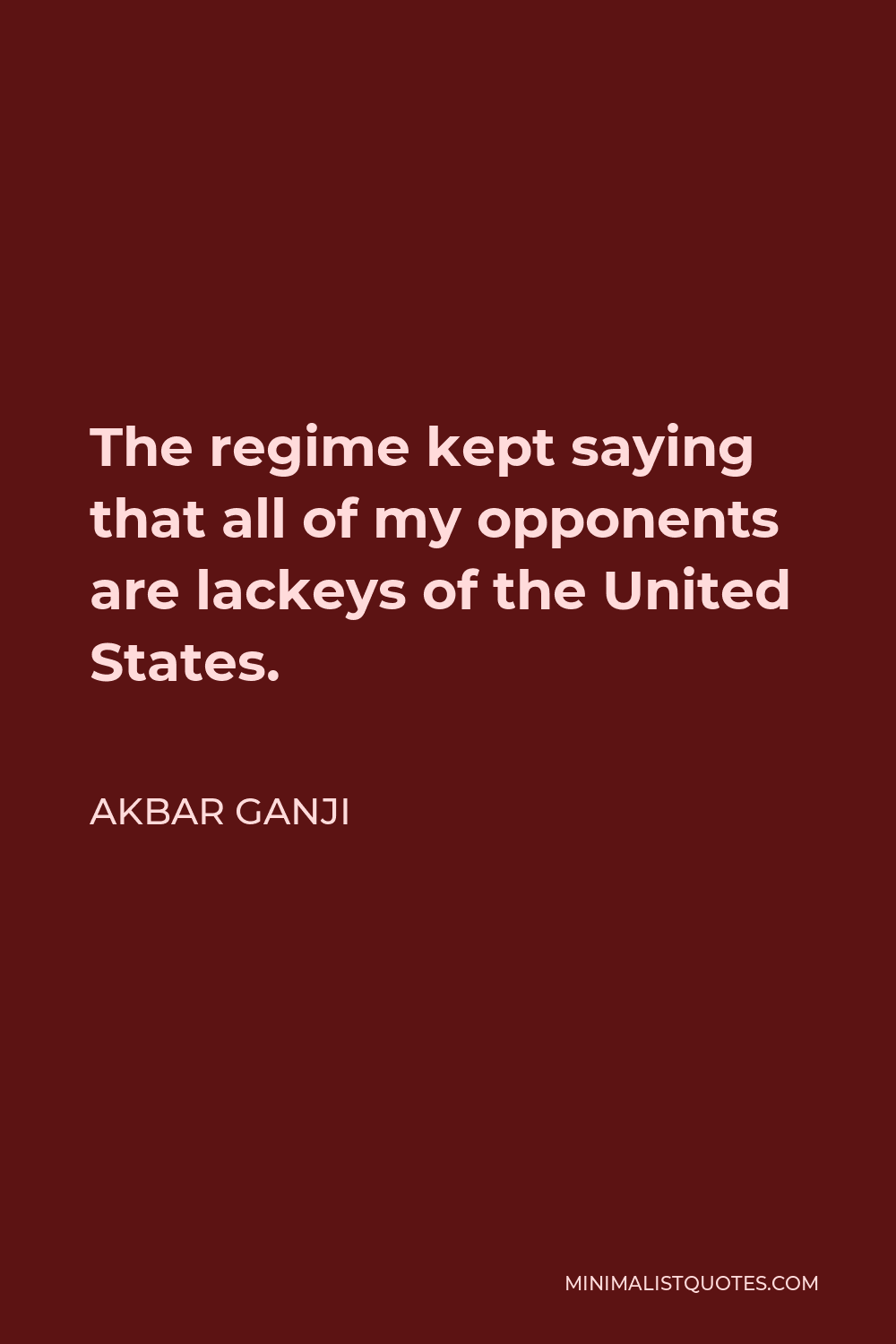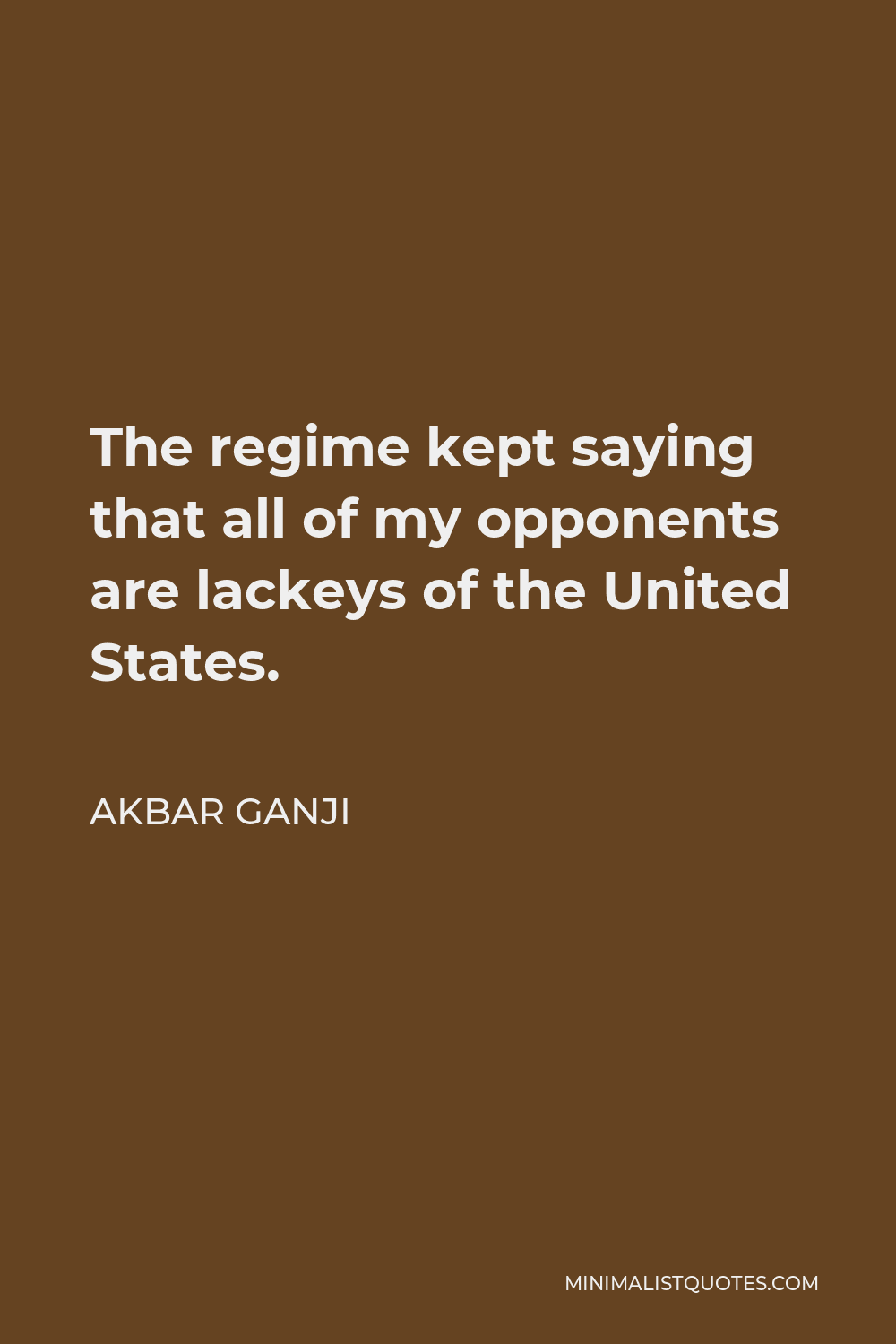The Revolutionary Guard was created to help defend the revolution, but it soon was diverted from its initial path.
AKBAR GANJIThe regime kept saying that all of my opponents are lackeys of the United States.
More Akbar Ganji Quotes
-





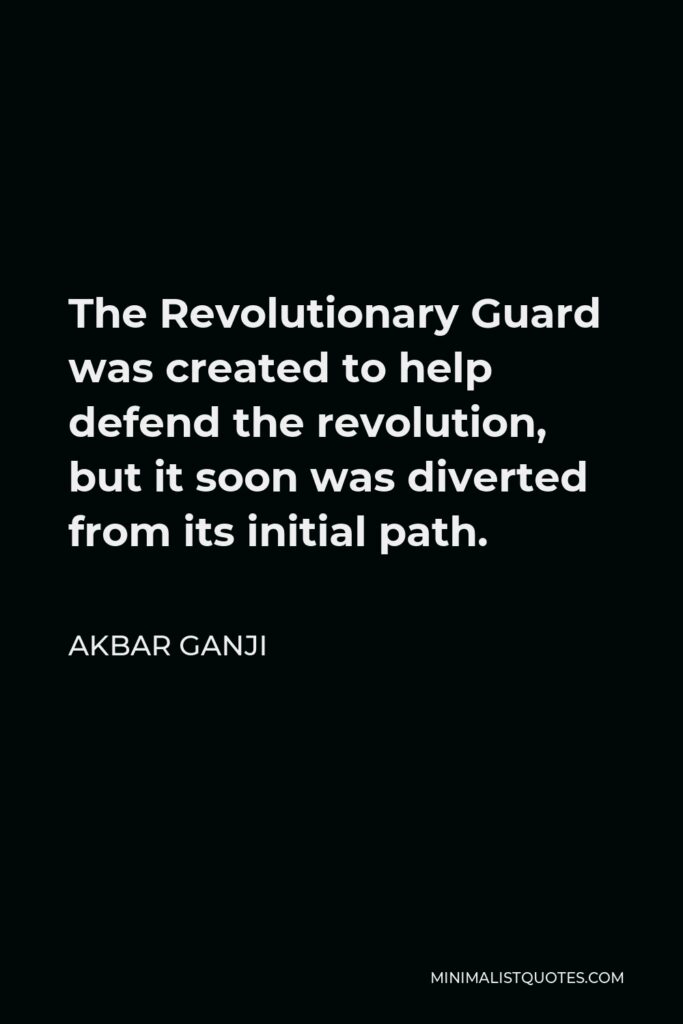

-





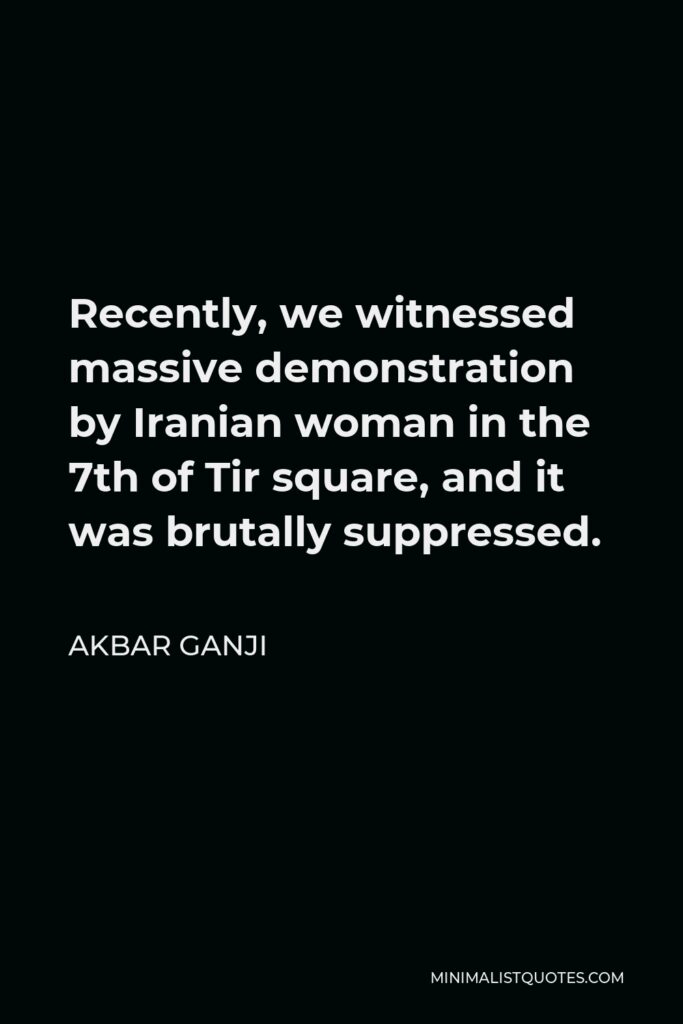

Recently, we witnessed massive demonstration by Iranian woman in the 7th of Tir square, and it was brutally suppressed.
AKBAR GANJI -





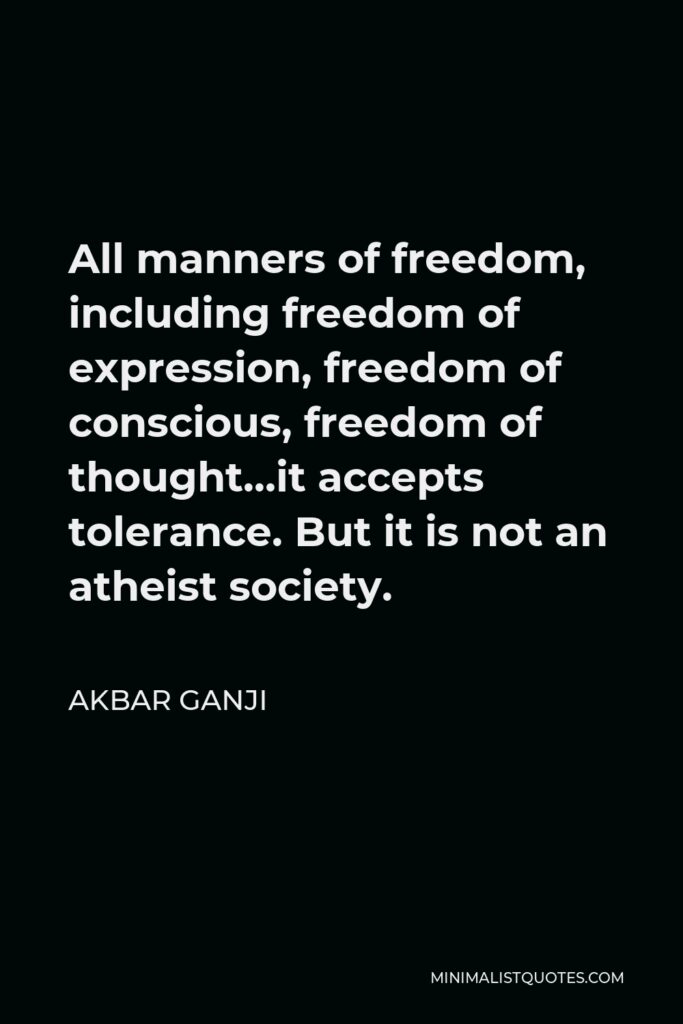

All manners of freedom, including freedom of expression, freedom of conscious, freedom of thought…it accepts tolerance. But it is not an atheist society.
AKBAR GANJI -





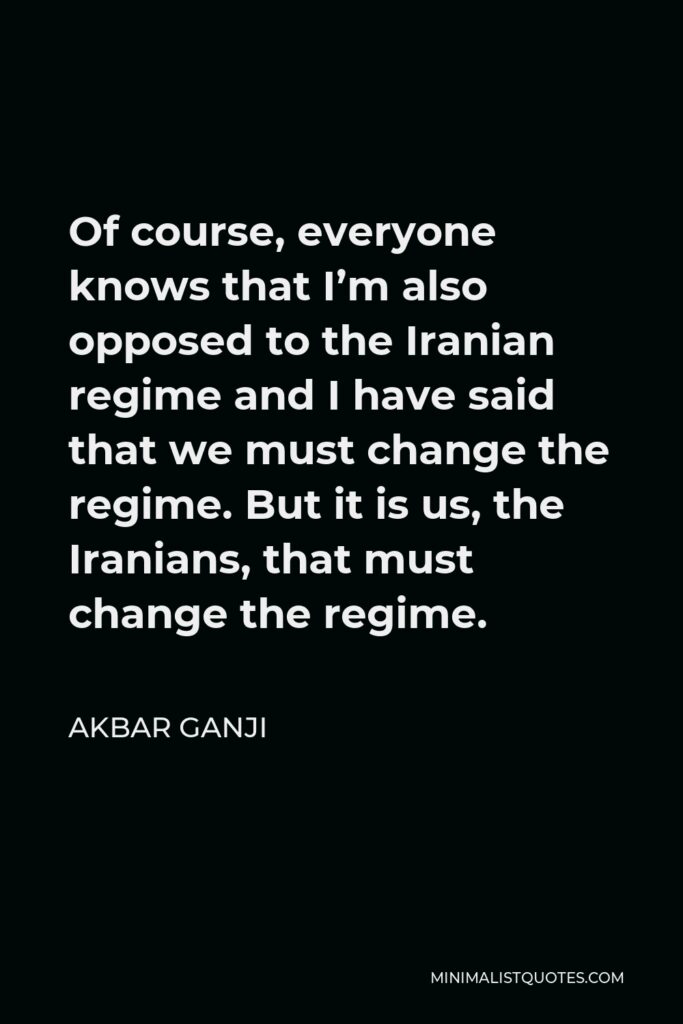

Of course, everyone knows that I’m also opposed to the Iranian regime and I have said that we must change the regime. But it is us, the Iranians, that must change the regime.
AKBAR GANJI -





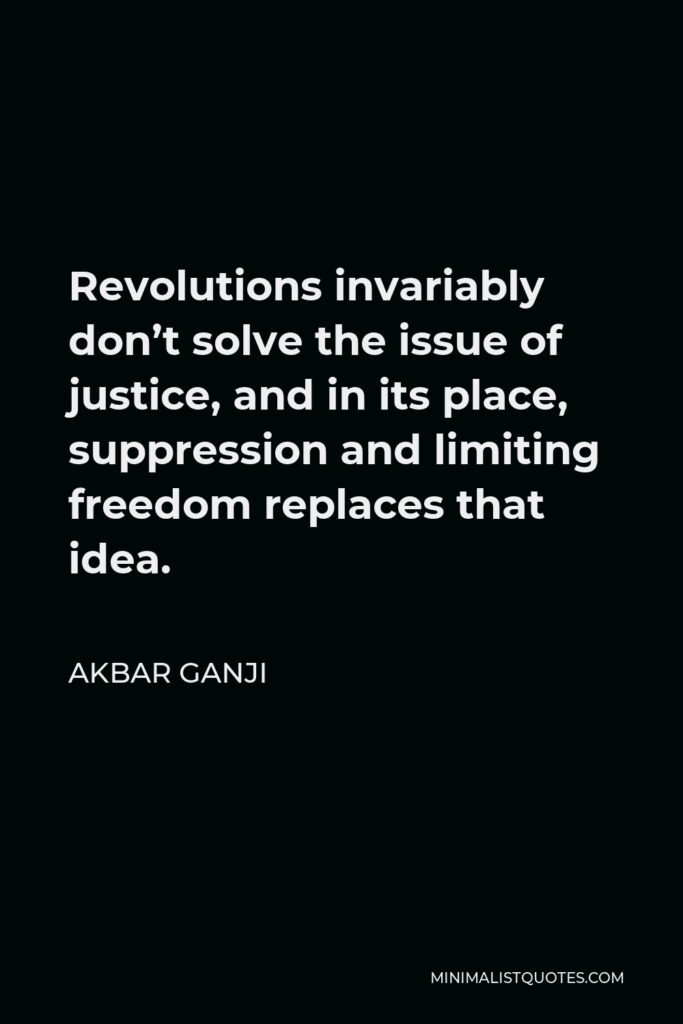

Revolutions invariably don’t solve the issue of justice, and in its place, suppression and limiting freedom replaces that idea.
AKBAR GANJI -





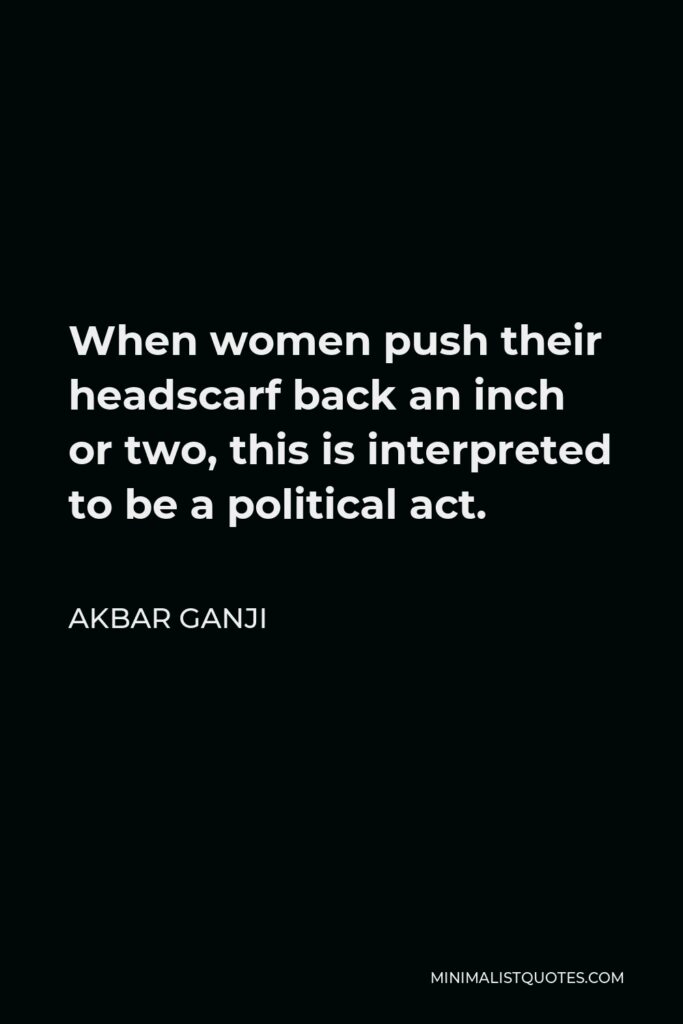

When women push their headscarf back an inch or two, this is interpreted to be a political act.
AKBAR GANJI -





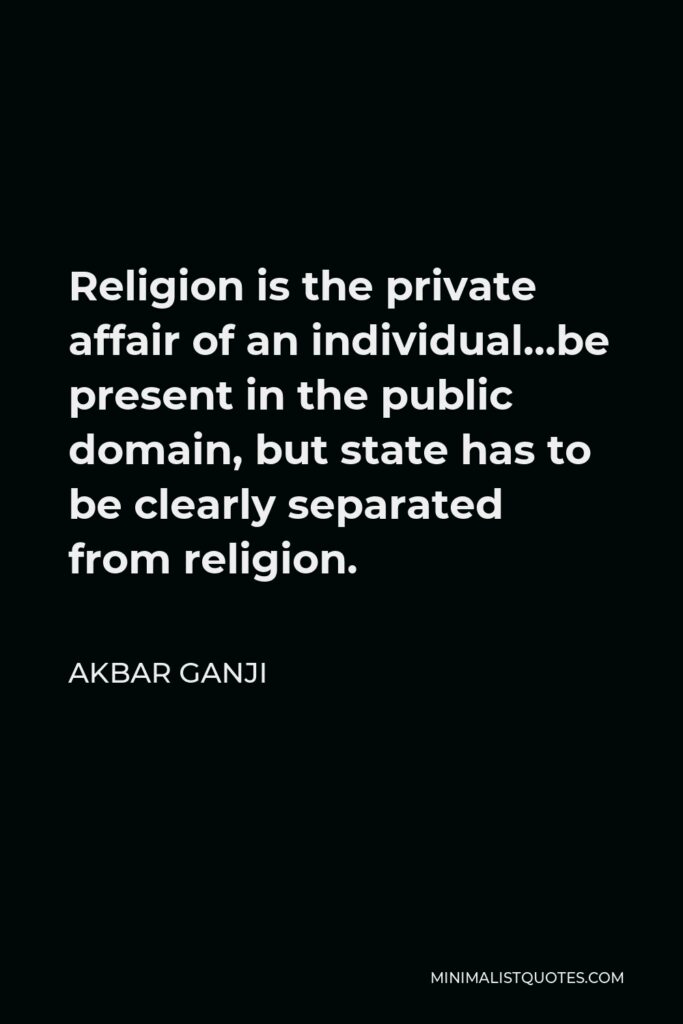

Religion is the private affair of an individual…be present in the public domain, but state has to be clearly separated from religion.
AKBAR GANJI -





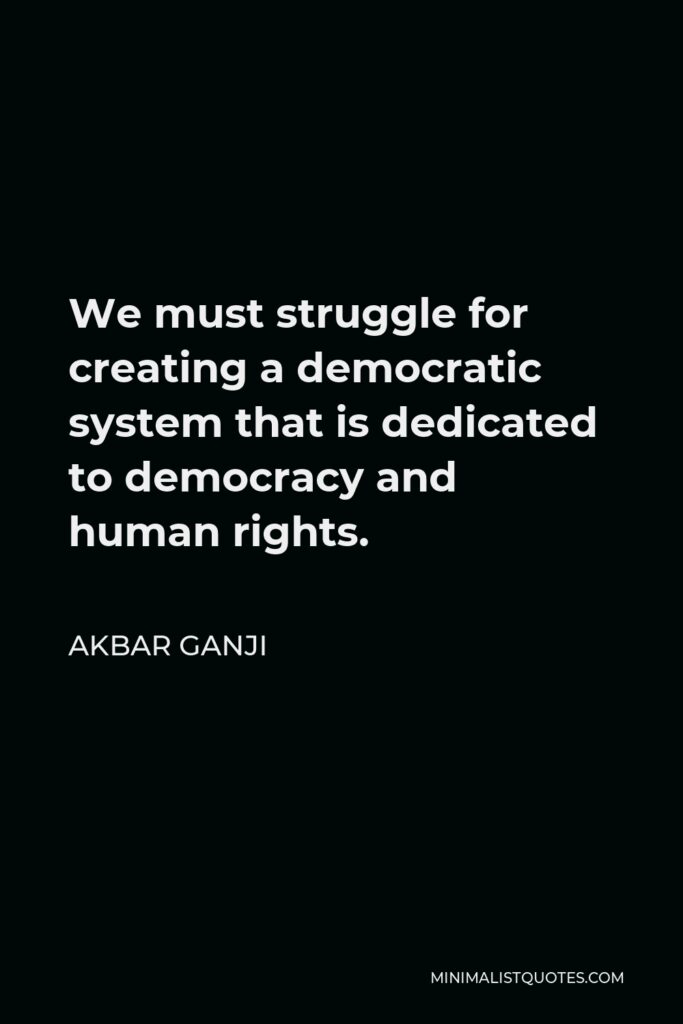

We must struggle for creating a democratic system that is dedicated to democracy and human rights.
AKBAR GANJI -





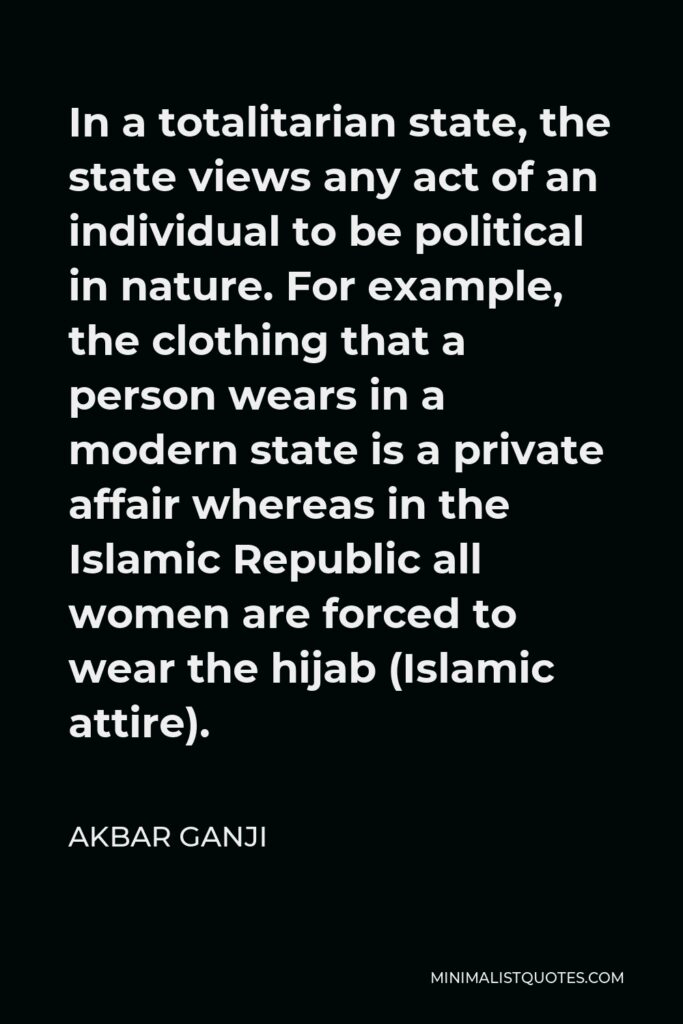

In a totalitarian state, the state views any act of an individual to be political in nature. For example, the clothing that a person wears in a modern state is a private affair whereas in the Islamic Republic all women are forced to wear the hijab (Islamic attire).
AKBAR GANJI -





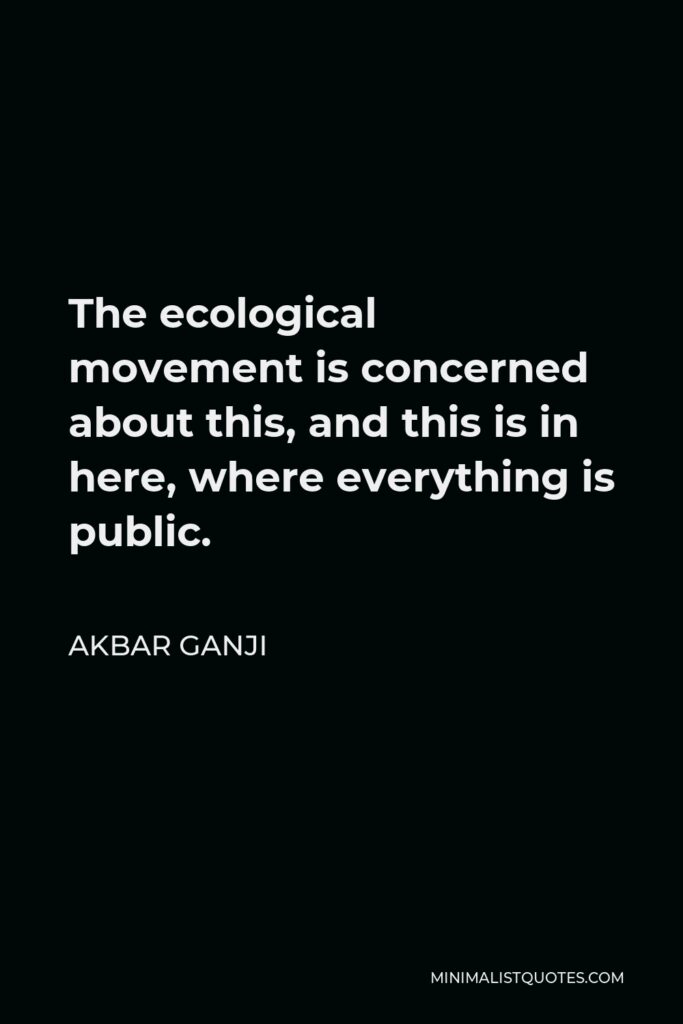

The ecological movement is concerned about this, and this is in here, where everything is public.
AKBAR GANJI -





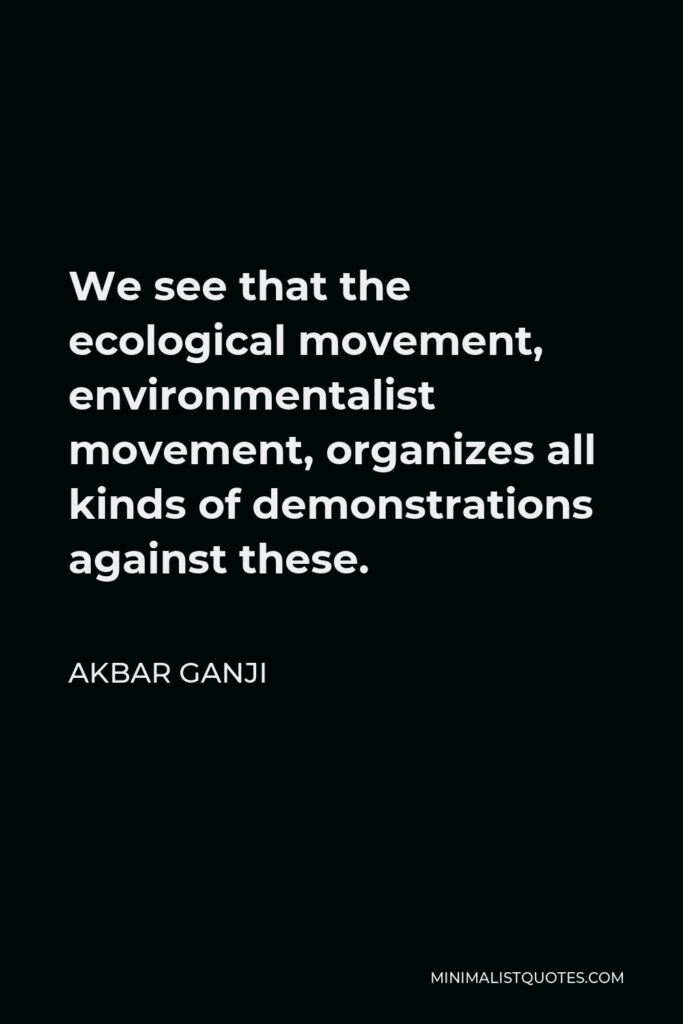

We see that the ecological movement, environmentalist movement, organizes all kinds of demonstrations against these.
AKBAR GANJI -





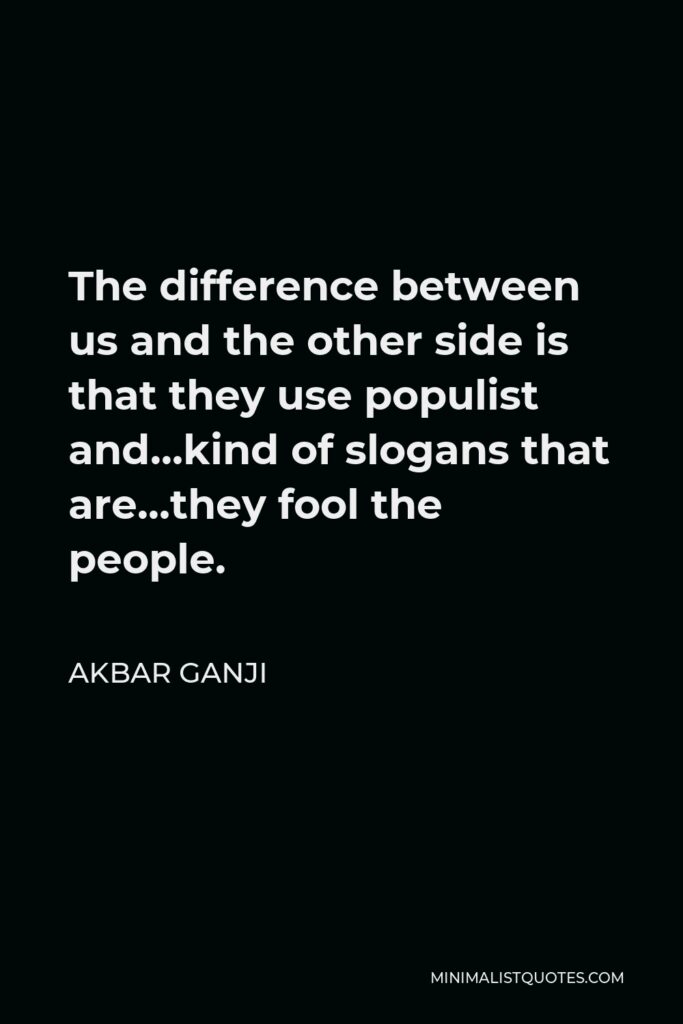

The difference between us and the other side is that they use populist and…kind of slogans that are…they fool the people.
AKBAR GANJI -





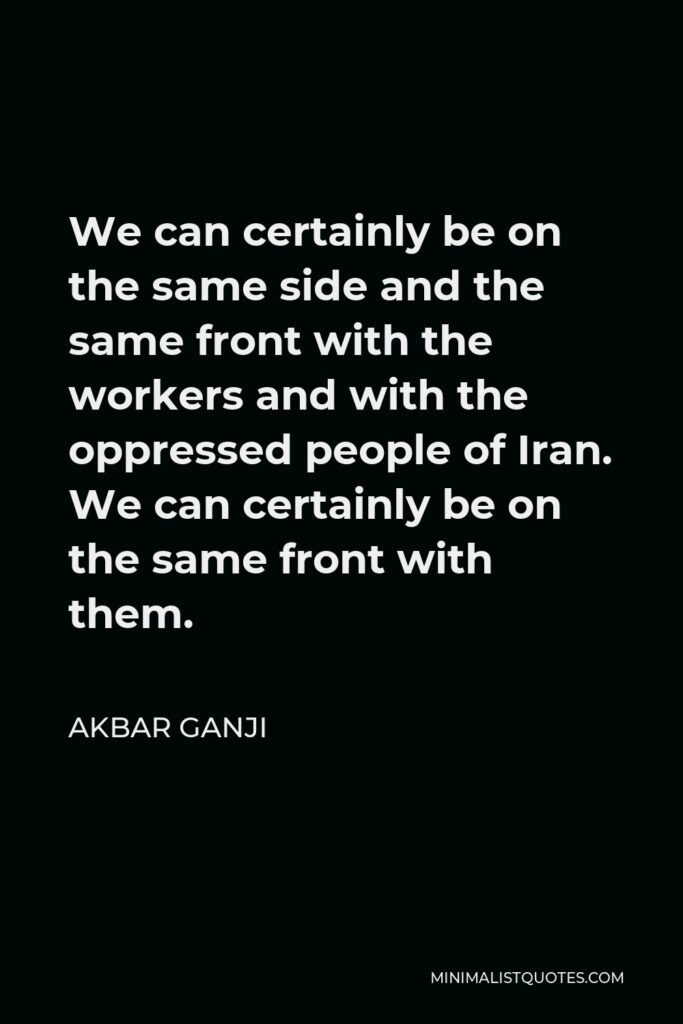

We can certainly be on the same side and the same front with the workers and with the oppressed people of Iran. We can certainly be on the same front with them.
AKBAR GANJI -





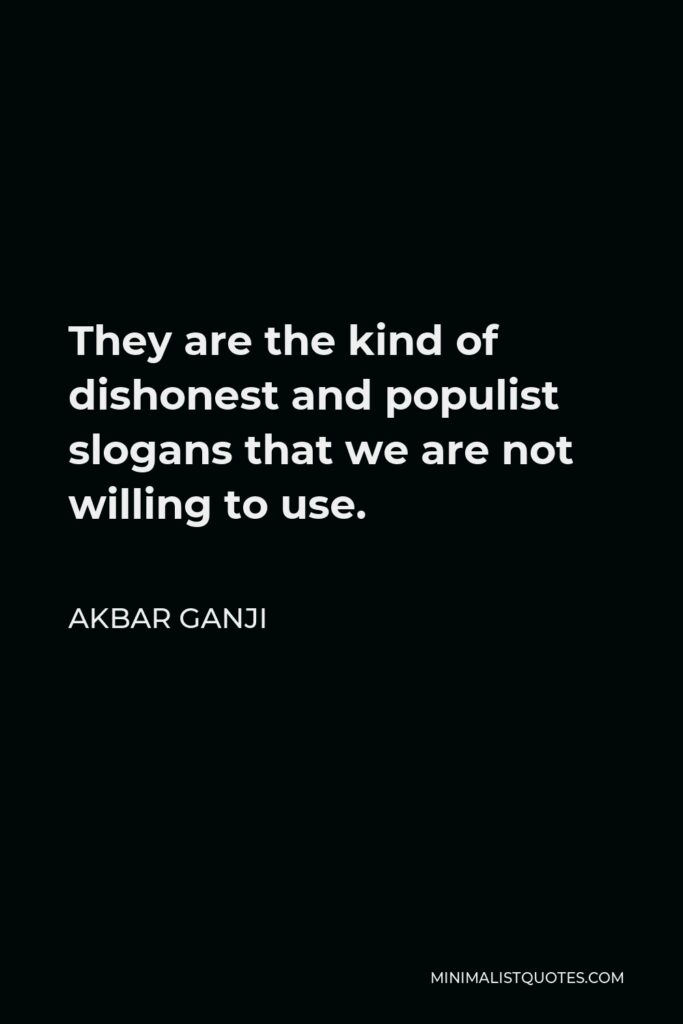

They are the kind of dishonest and populist slogans that we are not willing to use.
AKBAR GANJI -





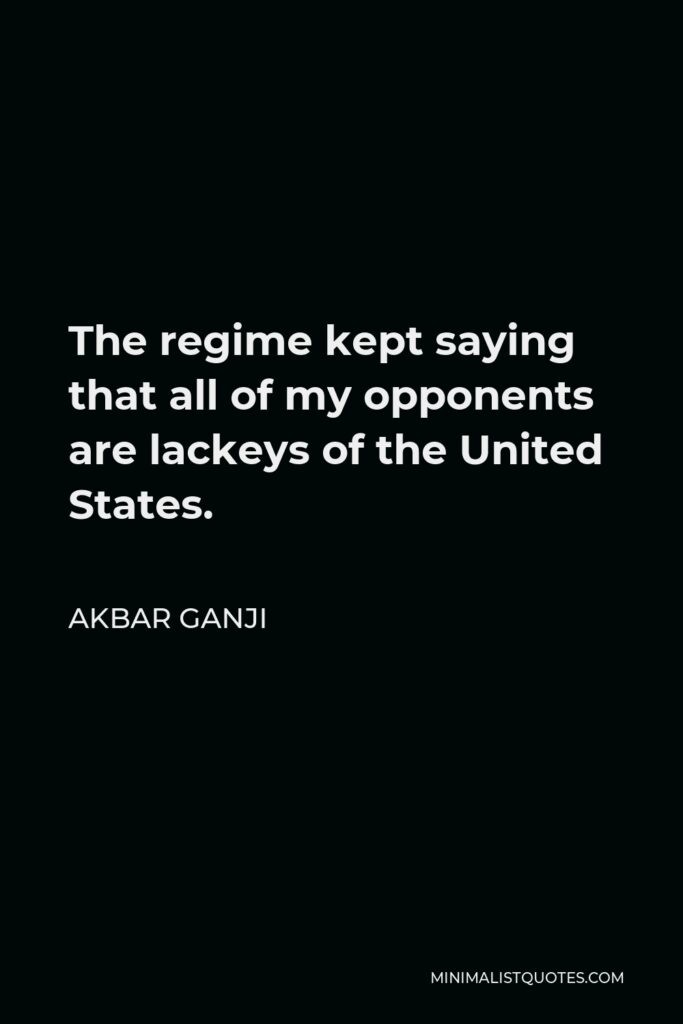

The regime kept saying that all of my opponents are lackeys of the United States.
AKBAR GANJI -





![Akbar Ganji Quote - [In] every revolution, there is a great divergence between what the revolutionaries expect and what the revolution actually accomplishes.](https://minimalistquotes.com/wp-content/uploads/2022/07/in-every-revolution-there-is-a-great-divergence-be-683x1024.jpg)

[In] every revolution, there is a great divergence between what the revolutionaries expect and what the revolution actually accomplishes.
AKBAR GANJI



